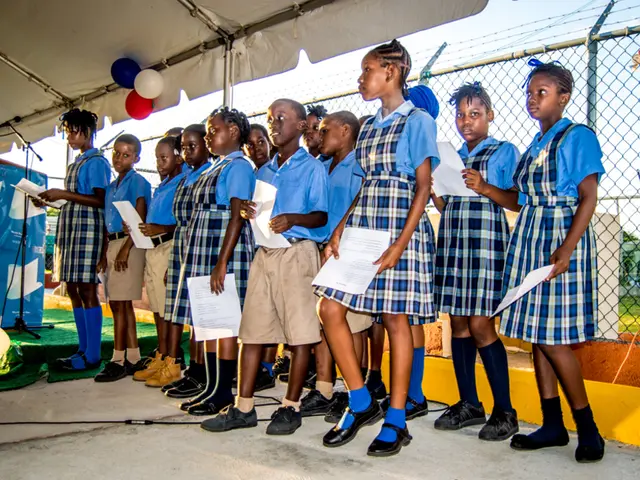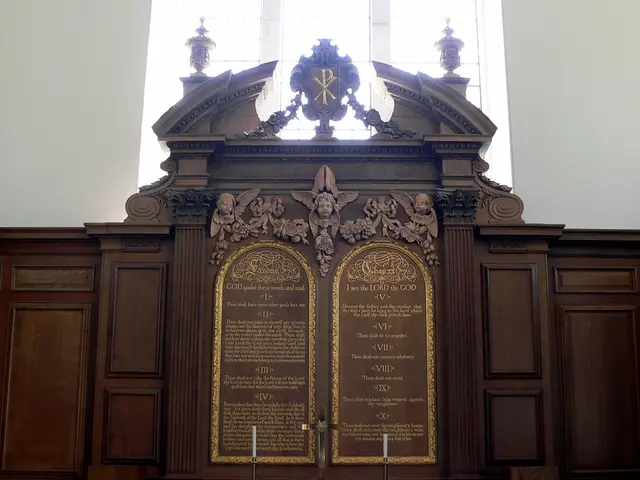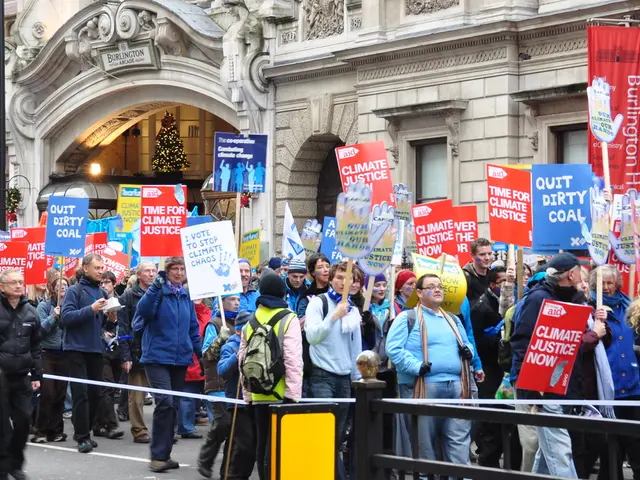Parliamentary Elections in Syria: Signify a Fresh Start?
Syria is gearing up for elections to form a new parliament, but concerns about fair representation and inclusivity are mounting. The election process, which involves selecting 140 members through regional electoral committees, and the appointment of the remaining 70 seats by interim president Ahmed al-Sharaa, raises questions about the extent to which minority groups will be effectively represented.
One of the gestures towards diversity has been the appointment of Hind Kabawat, a Christian, as Minister of Social Affairs. However, many Syrians view this as a symbolic rather than substantive measure, given the government's continued control by a close circle surrounding al-Sharaa. The election environment is particularly tense in minority areas experiencing excessive violence, which may further undermine participation and representation from diverse groups.
This setup echoes aspects of the previous regime under Bashar al-Assad, where most parliamentary seats were dominated by the Baath Party and its allies, limiting the parliament's independence or genuine pluralism. While the dissolution of the Baath party and old security structures signal a break, al-Sharaa’s strong appointing power over a significant portion of the parliament could similarly concentrate control and limit the impact of minority ethnic and religious groups within the legislative body.
The question of who al-Sharaa will appoint to the 70 non-elected seats is likely to be a key factor in regaining trust. Birgit Schaebler, a political scientist, doubts that direct elections would be possible given the severely weakened infrastructure and logistics caused by 14 years of civil war. The lack of trust in both the government and the electoral process might disincentivize authentic engagement of some religious and ethnic groups.
Areas not under government control, such as Kurdish-controlled regions and the Druze province of Sweida, will continue to have seats allocated based on their population. However, the extent to which these regions will participate in the elections remains uncertain. The new Syrian parliament is set to be elected in mid-September, but it remains unclear how diverse and inclusive the new parliament will be.
[1] Al-Monitor, "Syria's new parliament: A rubber stamp or a chance for change?", link [2] Middle East Eye, "Syria's new parliament to have 210 members, 60 more than the current provisional parliament", link [3] The New Arab, "Syria's new parliament: Who will be in it and what will it do?", link [4] Reuters, "Syria's al-Sharaa under pressure to regain trust after violence", link [5] The National, "Syria's new parliament: Who's who and what to expect", link
- The international community is closely watching the developments in Syria as it approaches elections for a new parliament.
- The Middle East has been a hotbed of news, politics, and conflicts, with Syria's elections being a significant event in the region.
- The election process, decided by regional electoral committees, could lead to a lack of fair representation and inclusivity, concern for many.
- Given the government's ongoing control by a close circle, the appointment of a Christian like Hind Kabawat as Minister of Social Affairs is seen as symbolic rather than substantive.
- Minority areas experiencing excessive violence are particularly tense, potentially further hindering participation and representation from diverse groups.
- The previous regime under Bashar al-Assad, with most parliamentary seats dominated by the Baath Party, is a concern for those who fear a concentration of control.
- Al-Sharaa’s strong appointing power could lead to a similar limiting of the impact of minority ethnic and religious groups within the legislative body.
- The question of who al-Sharaa will appoint to the 70 non-elected seats is crucial in regaining trust from the public.
- Birgit Schaebler, a political scientist, expresses doubts that direct elections would be possible given the weakened infrastructure and logistics due to the 14-year civil war.
- The lack of trust in both the government and the electoral process may discourage authentic engagement from some religious and ethnic groups in the election.
- Areas not under the government's control, like Kurdish-controlled regions and the Druze province of Sweida, will continue to have seats allocated based on their population.
- The political landscape of the new Syrian parliament remains uncertain, as it sets to be elected in mid-September.
- Al-Monitor, Middle East Eye, The New Arab, Reuters, and The National have all covered the story of Syria's upcoming parliamentary elections in detail.
- The news about Syria's elections suggests that policy-and-legislation could be influenced by domestic and international interests.
- The potential lack of diversity and inclusivity in Syria's new parliament raises concerns about the impact on education-and-self-development and personal-growth of minority groups.
- The question of war-and-conflicts in Syria and the region continues to impact the lives of millions, regardless of elections.
- Career-development opportunities could be affected by the political instability and uncertain representation in the new parliament.
- Job-search might become challenging for those disputing the fairness of the elections and the representation within the new parliament.
- General-news outlets such as Al-Monitor, Middle East Eye, The New Arab, Reuters, and The National are important sources of information on the elections and their potential impact.
- Crimes and justice, a rising issue in Syria due to the prolonged civil war, deserve attention and policy focus in the new parliament.
- Car-accidents, fires, and other accidents can happen anywhere, including Syria, emphasizing the need for safety and disaster management legislation.
- Skills-training programs, a crucial aspect of personal-growth and career-development, could benefit from support and funding from the new parliament.
- Despite the ongoing turmoil in Syria, sports, including football, basketball, baseball, hockey, golf, sports-betting, European leagues, tennis, and mixed martial arts continue to provide a source of joy and inspiration for many.







